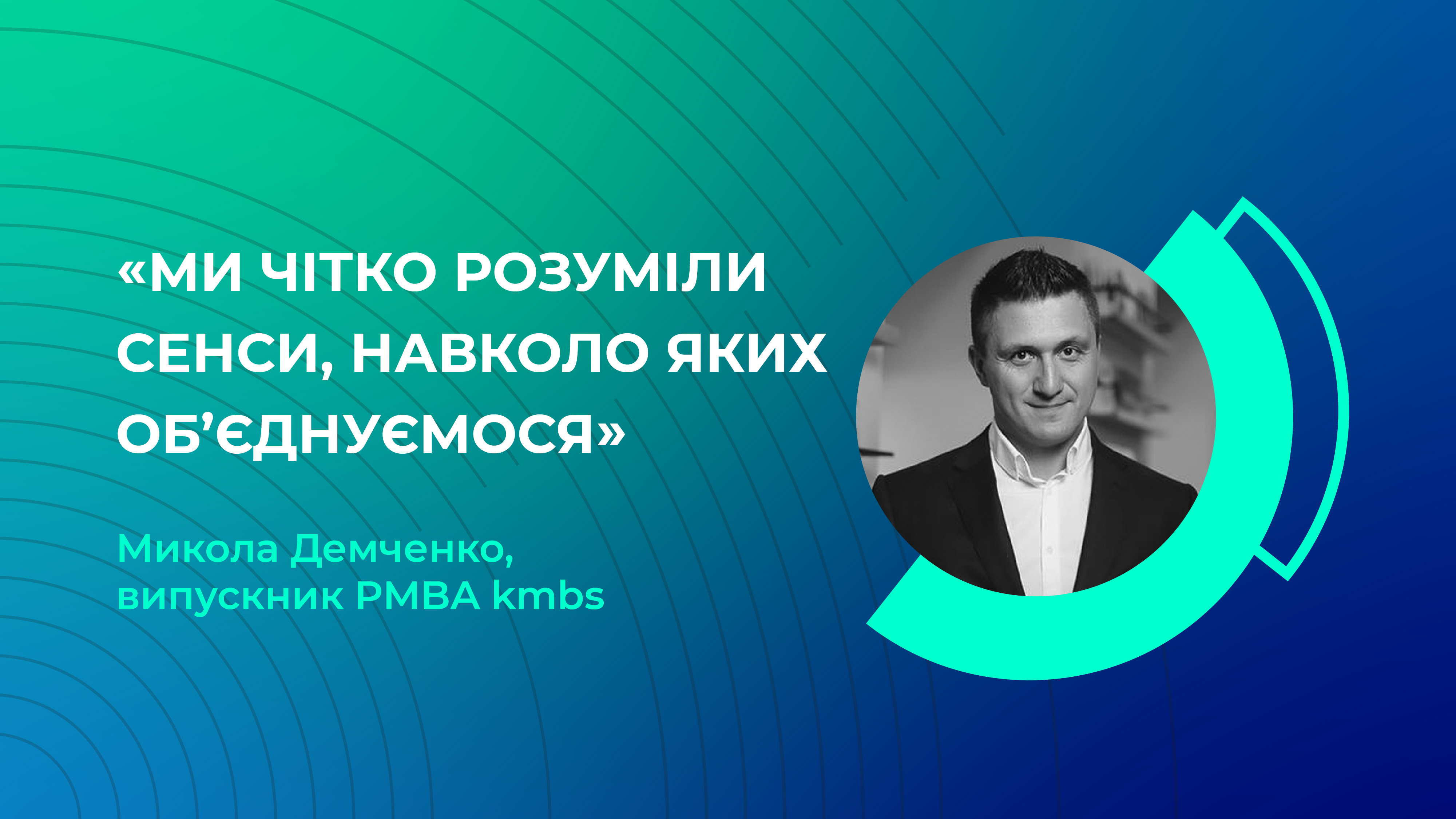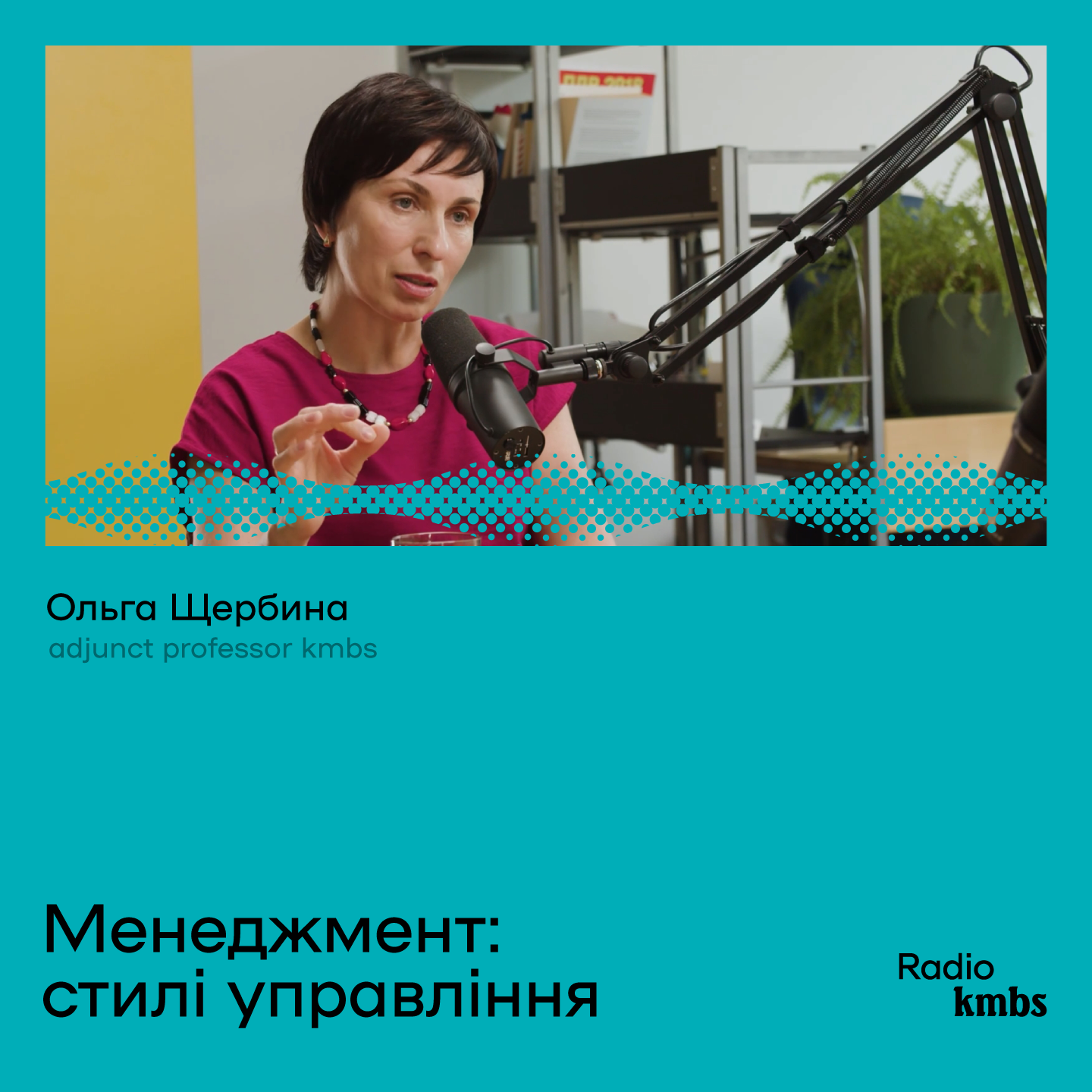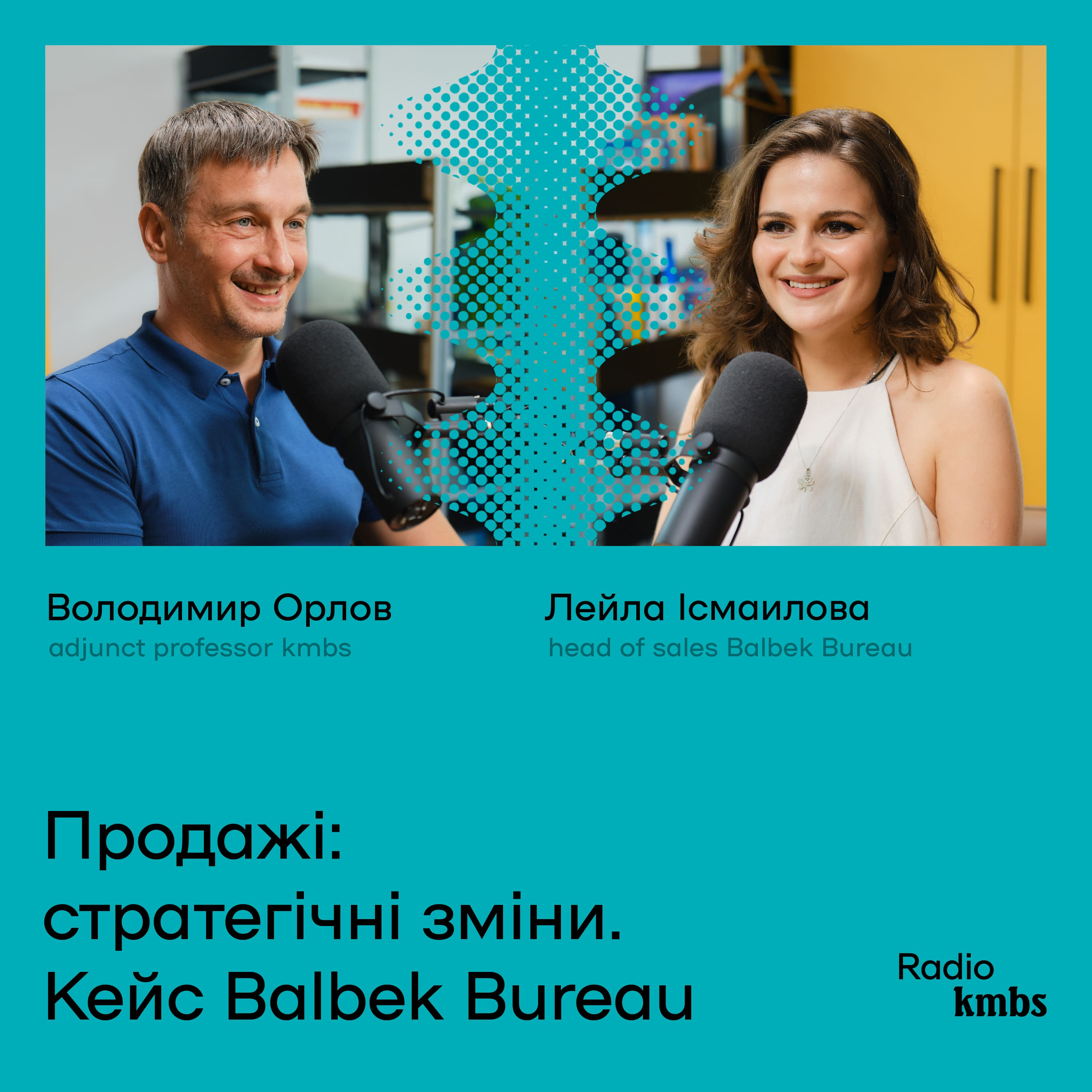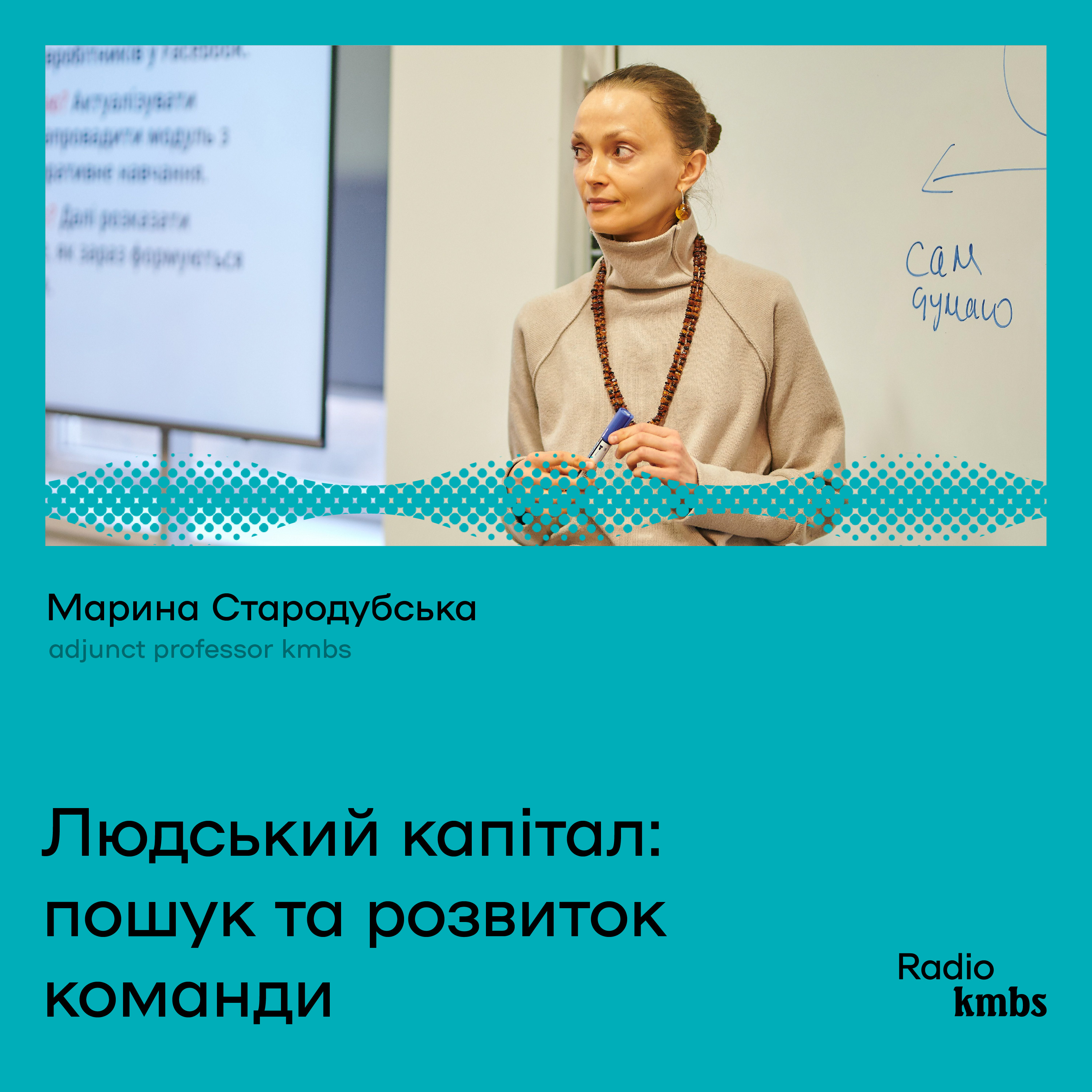Global challenges require unified responses, so Dnipro business community has united to address the most pressing issues of the region. Mykola Demchenko, the founder of Pravoe Delo Law Firm and a graduate of the Presidents' MBA kmbs, tells about the initiatives taken within kmbs ALUMNI stories project.
Information during crisis
For me, the quarantine started on March 14th. After returning from abroad, I stayed at home for two weeks and moved the company operations online to the maximum possible extent. As both business and common trips were canceled and some projects were stopped, I had a lot of time for new initiatives.
Probably, I immediately realized the seriousness of the approaching situation. And I began to share this awareness within all the contexts: family, business, kmbs alumni association, the environment.
One of the problems we have all encountered is the redundancy of information on coronavirus. Therefore, the first thing I did – together with another kmbs graduate Dmitro Ievlev – I carefully analyzed all available news and facts, both global and Ukrainian ones. Furthermore, we decided that we would make the results of our analysis public – through the Telegram channel we would inform graduates and other businessmen about what was happening in the world. We will publish only proven data, consulting company reports, – whatever can be useful to entrepreneurs. I think we will engage other graduates to find new niches for business together.
Dnipro context
I have been trying to unite several local business communities for the common purpose for a long time, and I wish to invest my efforts in this area. Thus, some time ago, I integrated into six major business communities of Dnipro and started to present them interesting cases that show what can be done in cooperation. For example, Yuriy Filyuk, co-founder of the urban project Teple Misto, and later Mark Zarkhin, co-owner of Kumpel Group, Lviv. We have even had time to get together for a strategic session hosted by kmbs lecturer Valery Pekar, and to come up with ideas for the first joint initiatives. However, the global context has changed.
Therefore, we entered the quarantine with a certain base for the future unification We have created a group for these communities to communicate. There were also separate groups in each community. In one of the clubs (Inspira), we held an online meeting attended by two dozen businessmen (representatives of ATB, Biosphere, various factories and other companies) – and identified the main threats we face. The first one is the low level of hospital supply and the safety of doctors. We decided to create our own fund, where we would accumulate money and allocate it to priority items.
At Inspira, I proposed to go beyond the community, because the problems we were dealing with affected the whole region. And since the preconditions for business unification were already created, people eagerly supported this idea. They clearly understood the senses, around which we unite, as in the last days of mid-March everyone talked about COVID-19 and the main problem of Ukrainian hospitals – protection of doctors. Only in Spain today there are 20 thousand doctors with coronavirus.
Of course, there were many independent initiatives by entrepreneurs. For example, the owner of one of Dnipro private clinics helped doctors to get to their place of work, some bought artificial ventilation devices for hospitals and more. But all these initiatives were scattered, while they had to be cohesive and systematic. After all, unlike local authorities, business really does a lot.
We have created a platform to combat coronavirus “Dnipro business vs COVID-19”, launched a site at https://www.dpvscovid.org/, through which we raise funds from everyone. It took a week from the first online meetings to the first fund raising. As of today, we have raised over UAH 1.5 million.
The roles of the project participants are distributed naturally: someone is responsible for raising money, someone is responsible for external communications, and so on. Kiddo Charitable Fund, which has experience in managing accumulated funds and keeps in touch with supply chains and hospitals, also has joined us. Thus, it is responsible for spending money raised: it procures masks and respirators, protective suits and other things required in medical institutions.
We have also made it possible for entrepreneurs to supply hospitals with whatever they lack: utensils, buckets, certain household goods. Some businessmen personally purchased diesel for ambulances. Unfortunately, all of the said, for the most part, is like “plugging holes”, but not a systematic operation. In fact, we perform the task of local authorities, which do not spend money from the budget on technical equipment of hospitals (although these funds are available).
The interesting thing is that we have not only established cooperation within the region, but also between regions. For example, Maksym Leontiev from HD-group helped us with supplies, and Yuriy Filyuk contacted us to implement the same in Ivano-Frankivsk.
Own steps
When the quarantine started, I moved to the village by Dnipro. The street I live on has no lighting. It took me three days to arrange everything with the village head and we solved the problem. I also ordered 140 paulownia young plants (a fast-growing tree) and we would be planting them all over the village. I see that the village is not ready for the epidemic, so if there are cases of the disease, it will be necessary to create the anti-crisis headquarters.
By the way, the idea of driving doctors to hospitals had a continuation. I realized that I almost did not use my car, so I borrowed it a doctor I know, who now gathers colleagues and drives them to work. It costs them nothing as I have an electric car and there is a corporate charging station. Having leaned this story, another kmbs graduate, Thomas Brunner, made an agreement with the car concern Aelita to provide several cars for doctors' needs. That is, I created a kind of a wave.
Pandemic philosophy
At such times we live through, many moral questions arise. What should you do? What decisions should you make? What is your role and what you are responsible for?
We are now working with philosophers and carefully researching the subject of death, the meanings of life. As right now the old coordinate system, the old senses are changing. We have to find new ones. The works by Victor Frankl are now relevant. We are also exploring the philosophy of the pandemic. After all, the situation we are experiencing now is not the first pandemic in human history, they repeat cyclically. For example, in the mid-seventeenth century, in London, there was an epidemic of bubonic plague, and Daniel Defoe described it in his diaries. We organize webinars to tell this story.
The pandemic has a great socio-cultural impact. It can change the whole system for better or worse. At the very least, the current situation may cause people to think about the connection between the decisions we make during state and local government elections and the circumstances we ultimately face.










